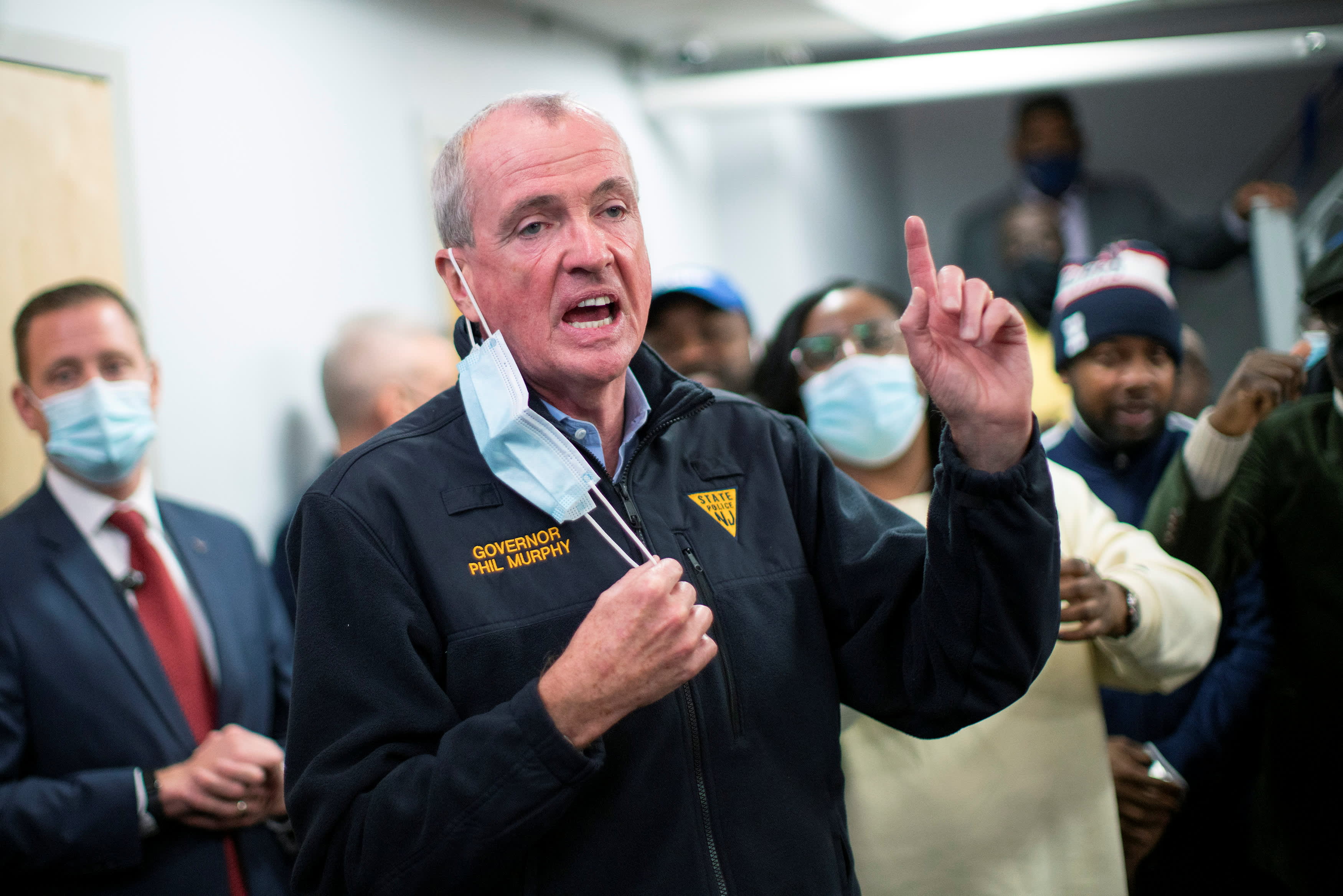New Jersey Gov. Phil Murphy on Friday said large-scale mitigation measures are no longer needed to fight Covid, lifting a public health emergency order that was declared in response to the omicron variant.
The public health emergency officially ends on Monday when the Garden State will lift its mask mandate for public schools, the last mitigation measure it had in place to combat Covid. Murphy said New Jersey is transitioning away from crisis management to a more normal way of life as infections dramatically decline from the unprecedented surge the state suffered from omicron.
“Given the enormous progress we have made, the time when large-scale mitigation measures were necessary has passed and hopefully will never return,” Murphy told reporters during a news conference that was billed as the state’s last official public briefing on Covid. The governor said vaccines and treatments make it possible to return safely to normal life even as the virus continues to circulate.
While New Jersey’s public health emergency in response to omicron is ending, Murphy said he would maintain the state of emergency declared at the start of the pandemic in March 2020. The governor said this would not impact people’s normal lives. It will allow the state to receive and distribute federal funds and cut down on red tape, he said.
Murphy held an emotional moment of silence for the more than 30,000 New Jersey residents who lost their lives to Covid. The governor’s voice cracked and he teared up as he commemorated them: “We have to remember each and every one of these lives we’ve lost, and the families they left behind,” Murphy said.
Across the Hudson River, New York City Mayor Eric Adams announced he will lift the mask mandate for public schools effective Monday as well as the vaccination requirement for indoor dining, gyms and entertainment venues. Schools will still screen students to make sure they stay home if they have symptoms, and masks are still required for events with children under 5 years old because they are not eligible for vaccination yet.
Individual businesses can still require proof of vaccination and masking indoors if they want, and parents can still send their kids to school with masks if they choose. Adams said the mandates could be reimposed if cases or hospitalizations rise again. However, he said New Yorkers should return to normal and enjoy the city.
The easing of Covid restrictions in New Jersey and New York marks a turning point for the region, which was the epicenter of the first Covid wave in the spring of 2020 as well as the massive omicron surge in January. However, New Jersey Health Commissioner Judy Persichilli said the state will remain vigilant as Covid continues to circulate.
“It is likely that we will continue to have surges in Covid-19 activity,” Persichilli said at the briefing with Murphy on Friday. “So it will be important that we all continue to be aware of the activity levels and adjust our behaviors accordingly.”
New infections in New Jersey are down 95% from a pandemic record in January, and in New York state cases have declined 97%. New Jersey reported a daily average of 1,449 new cases on Thursday, down from a record of 31,699 cases on Jan. 10, according to a CNBC analysis of data from Johns Hopkins University. New York state reported a daily average of 1,894 new cases, down from a record of 85,000 on Jan. 9, according to the data.
In New Jersey, 74% of the population is fully vaccinated. In New York City, 77% of the population is fully vaccinated.
